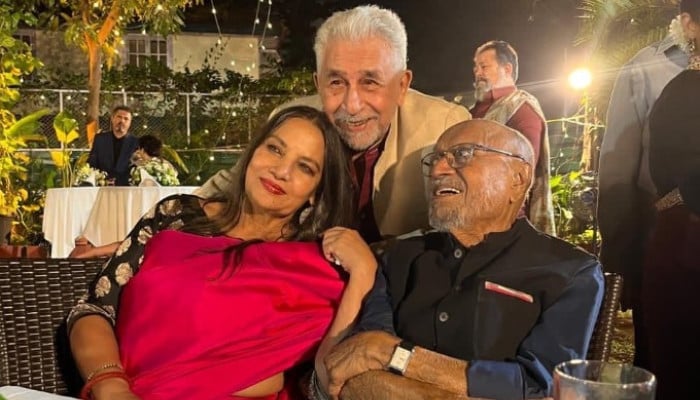Sports
NON-FICTION: A journalist’s journey
字号+ Author:Smart News Source:Business 2025-01-13 07:29:21 I want to comment(0)
We read biographies for a number of reasons. Among other things, they help us gain a deeper understanding of individuals who have had a significant impact on society or made important contributions to it. We learn from their experiences, struggles, triumphs and personality and get inspiration and motivation for our own goals. But a journalist’s biography, in addition to the above, serves as a valuable source for our understanding of the history of states and their institutions. One finds in them (or at least hopes to find) some facts and revelations about important matters of their country and society. And so is the case with Ashraf Shad’s memoirs. From humble beginnings to becoming a prolific author, poet and established journalist, Ashraf Shad shares 10 years of his journey, from 1966 to 1976, in Sahafat Kay Khaar-o-Gul [The Flowers and Thorns of Journalism]. At over 300 pages, the book is, he says, one part of his complete autobiography, titled Ik Par Lahu Mein Tar [A Wing Soaked in Blood]. Shad paints a good picture of the journalists and journalism of the 1960s and ’70s and talks in detail about his relations with and events involving his colleagues and senior journalists of the time, as well as the difficulties — the thorns — he braved at the beginning of his journalistic career. He says he came unplanned to the field of journalism and that his start there was very tough. Initially, he worked without a salary at different newspapers and gradually gained a proper paid position as a sub-editor, from where he went on to become an experienced reporter and editor, working for publications such as Hurriyat, Mashriq, Mayar and Al-Fatah among others. After getting some foothold as a reporter, he did some good reporting, especially for Al-Fatah. One particular case of the country’s history that he discusses and on which he wrote some good features, is how certain people from the political regime as well as the ‘establishment’ benefit from the defence budget and make millions in the purchase of weapons and aircrafts. He has particularly mentioned some interesting things about the Pakistan Navy and the Air Force and tells us how some institutions get more talked about in the news while others keep doing their work silently. And it is due to this and some similar revelations that I think the book can be of particular benefit to researchers and students of journalism. Besides, Mr Shad also gives helpful tips at different occasions on becoming a successful journalist. Talking about the strike of journalists in the country in April 1970, he calls it one of the greatest wars that journalists have ever fought in Pakistan. He says that, although it was made unsuccessful by the owners of media publications and authorities, the strike still achieved many positive and far-reaching results. Two other particularly interesting chapters are about his travels to Budapest and Moscow, where he had gone for a scholarship and journalistic training. There is also a detailed chapter about the Karachi Press Club, its politics and its important role in journalists’ lives at that time. In the last chapter, which is quite brief, he talks about media censorship by politicians and army dictators. It started from Gen Ayub Khan’s era, he says, and went to its extreme in Z.A. Bhutto’s and Gen Zia’s time. As far as the book’s style is concerned, it is compact and the diction is quite good. But it feels somewhat boring at the beginning, though this changes and it gets interesting as one progresses. One particular thing that makes one lose interest at various points is the author’s detailed description of events involving his friends and colleagues. It is something that a general reader might not be that interested in. The reviewer is a member of staff. X:
1.This site adheres to industry standards, and any reposted articles will clearly indicate the author and source;
 Related Articles
Related Articles-
Hamas official says ‘ready’ for Gaza ceasefire, urges Trump to ‘pressure’ Israel
2025-01-13 07:06
-
Chinese President Xi calls corruption biggest threat to Communist Party
2025-01-13 06:43
-
Second arrest warrant issued against exiled Hasina in Bangladesh
2025-01-13 06:14
-
South Korean investigators ask police to arrest Yoon
2025-01-13 04:57
 User Reviews
User Reviews Recommended Reads
Recommended Reads Hot Information
Hot Information- Death toll in Kurram passenger vans attack rises to 42; more than 30 injured
- Four rebels, one Indian cop killed during clashes in Maoist's forested heartland
- Second arrest warrant issued against exiled Hasina in Bangladesh
- Four rebels, one Indian cop killed during clashes in Maoist's forested heartland
- Over 60 feared dead as Israel bombs homes in Gaza
- Chinese President Xi calls corruption biggest threat to Communist Party
- Chinese President Xi calls corruption biggest threat to Communist Party
- Canada's political fix — what might happen next?
- PTI lawyers offer free legal aid to party workers
 Abont US
Abont US
Follow our WhatasApp account to stay updated with the latest exciting content













